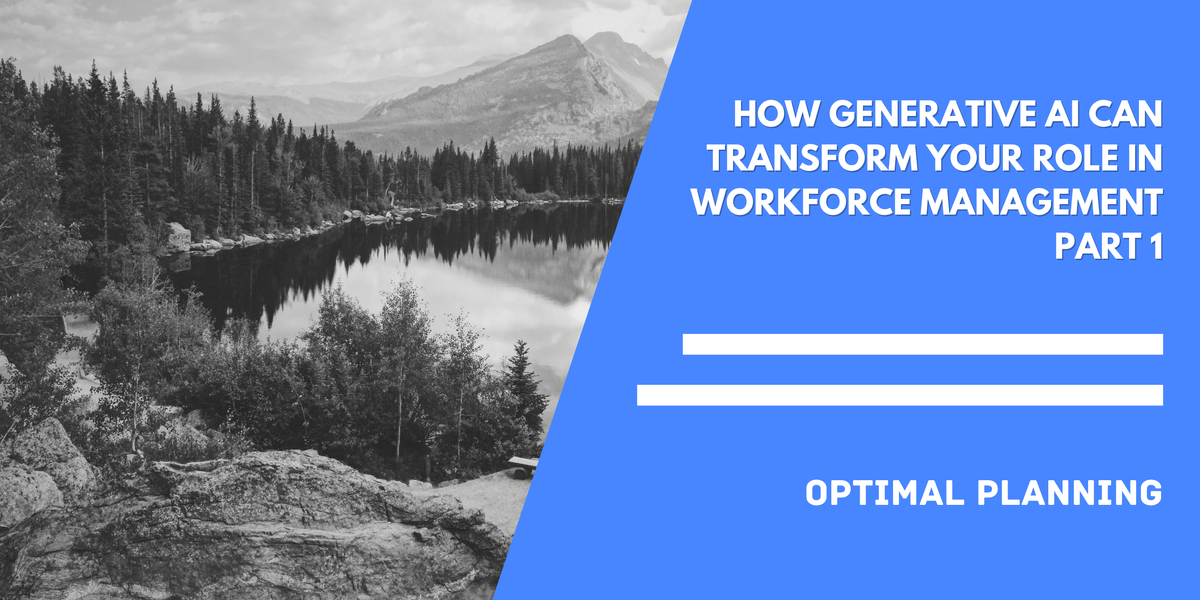How Generative AI Can Transform Your Role in Workforce Management Part 1

I have two perspectives regarding how Workforce Management (WFM) professionals can leverage the impact of generative AI in the industry: breadth and depth. This week, I'll discuss breadth, and next week, I'll explore depth.
Breadth
In WFM, core pillars such as real-time adherence, scheduling, forecasting, and capacity planning play crucial roles. Traditionally, individuals gravitate towards one of these specialties and develop expertise. However, with the advent of generative AI, many routine tasks within these areas will be automated. This shift will allow analysts, schedulers, forecasters, and capacity planners to focus on higher-value activities that enhance operational efficiency.
As an example, with the additional time, schedulers should broaden their understanding of capacity planning. Instead of passively receiving the number of associates needed, they can proactively interpret capacity plans and optimize schedules based on hiring trends and attrition rates. By being closer to operations, schedulers can also inform capacity planners about potential operational changes, like unexpected staff turnover, and suggest adjustments.
Moreover, WFM professionals should explore other departments that influence their work. For instance, a capacity planner could delve into how transactions are routed within the company. By understanding this process, they can better predict the availability of staff and identify opportunities to increase associate utilization, such as recognizing cross-trained associates not previously considered in the capacity plans.
Networking with peers and industry vendors is another way to utilize newfound time effectively. Engaging with other WFM professionals can expand your knowledge and introduce new practices or technologies that could enhance your department's operations. Conversations with vendors can provide insights into upcoming features or industry trends, helping you anticipate and address future challenges.
Embracing generative AI in WFM is not merely about adapting to automation but using the additional time it provides to foster intellectual curiosity and lifelong learning. By exploring interconnected functions and engaging with the broader industry, WFM professionals can develop a holistic understanding that surpasses the capabilities of AI alone. This approach not only enhances personal expertise but also contributes significantly to organizational success.